For new and returning students, walking into the school building looked different this year. On the first day of school, teachers and administrators welcomed students to the new school year, while also reminding them to turn off and put away cell phones. A phone would not be allowed in sight until the dismissal bell rang at 2:55 p.m.
For many students and teachers, the adjustments to the new policy were instantly noticeable.
Students brought card games to fill the silence during lunch and pulled out coloring books to pass the time. In the classroom, students appeared more focused and the hallways were filled with conversations.
“I’ve already seen kids talking to each other all day long,” biology teacher Kristen Lynam said. “The conversations were so much more in-depth and genuine. I’ve seen more interaction. Kids actually walking with their heads up, not down on their phones.”
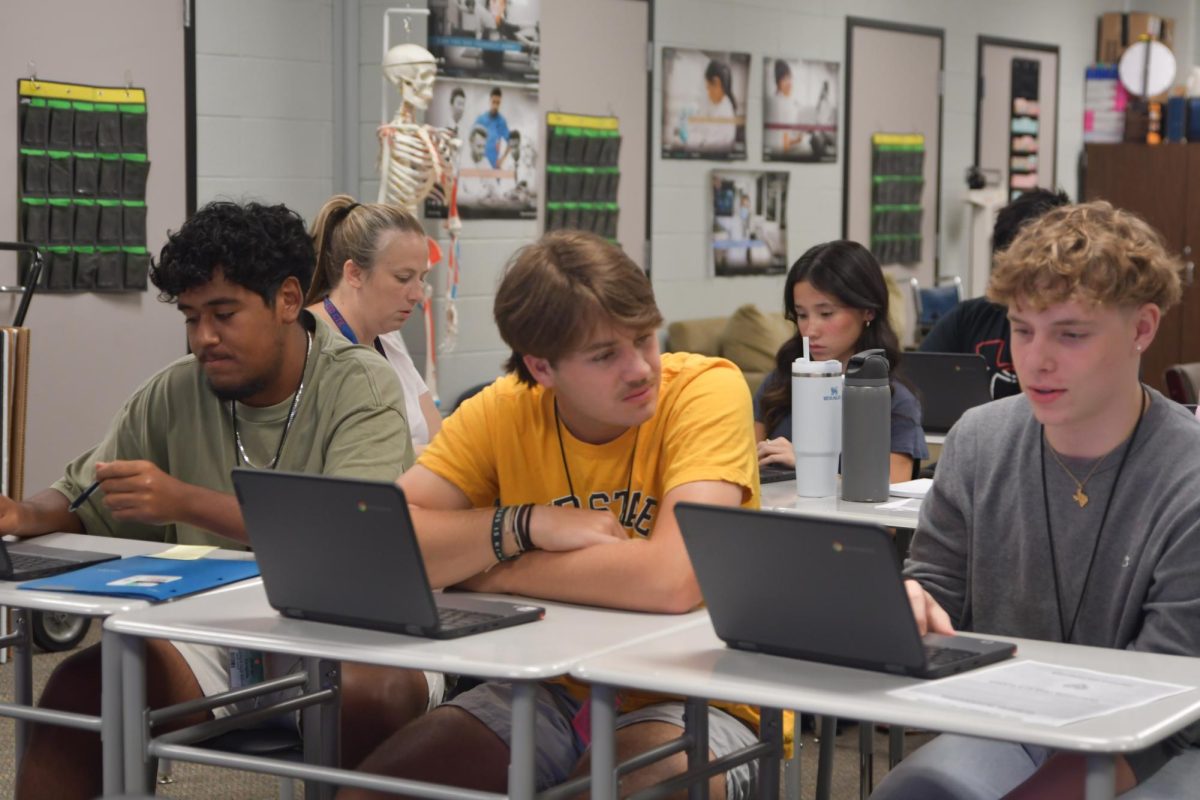
Prior to the 2025-26 school year, the Texas Legislature passed House Bill 1481, a new state law prohibiting the use of personal communication devices (PCDs) in classrooms during the school day. The state law aims to reduce the number of distractions in a classroom setting.
The Humble ISD trustees approved the district-wide policy, which prohibits students from using cellphones, smartwatches, tablets, laptops, headphones and other PCDs during the school day. Since implementing the policy on Aug. 13, teachers have adjusted their teaching styles and students have adapted to the new challenges.
The district also adopted district-wide consequences. When a phone is seen by a staff member, the phone will be confiscated and taken to a house office. For the first offense, a student will be allowed to pick the phone up at 2:55 p.m. Any offense after the first time, a parent or guardian will have to come to Kingwood Park to pick it up.
“[The phone] goes to the house office, and we have a form that we’re going to go through,” principal Wes Solomon said. “Whose phone is it? Who took it up? What time? Eventually, it’ll have to go to the front office, if it’s a second violation, because mom will have to come pick that up after school or a parent or guardian. So there is a very specific chain of custody.”
After the second offense, a parent or guardian will need to pick up the phone between 2:55 p.m. to 3:30 p.m. on the day it was confiscated. If the phone is not picked up before 3:30 p.m., it will be kept in the front office until it is picked up at any point during the next school day.
Solomon said that the school will continue its four 30-minute lunch shifts each day until students adjust to the new policies. Logistics are still being finalized for enforcing it during the school’s typical hour-long lunch.
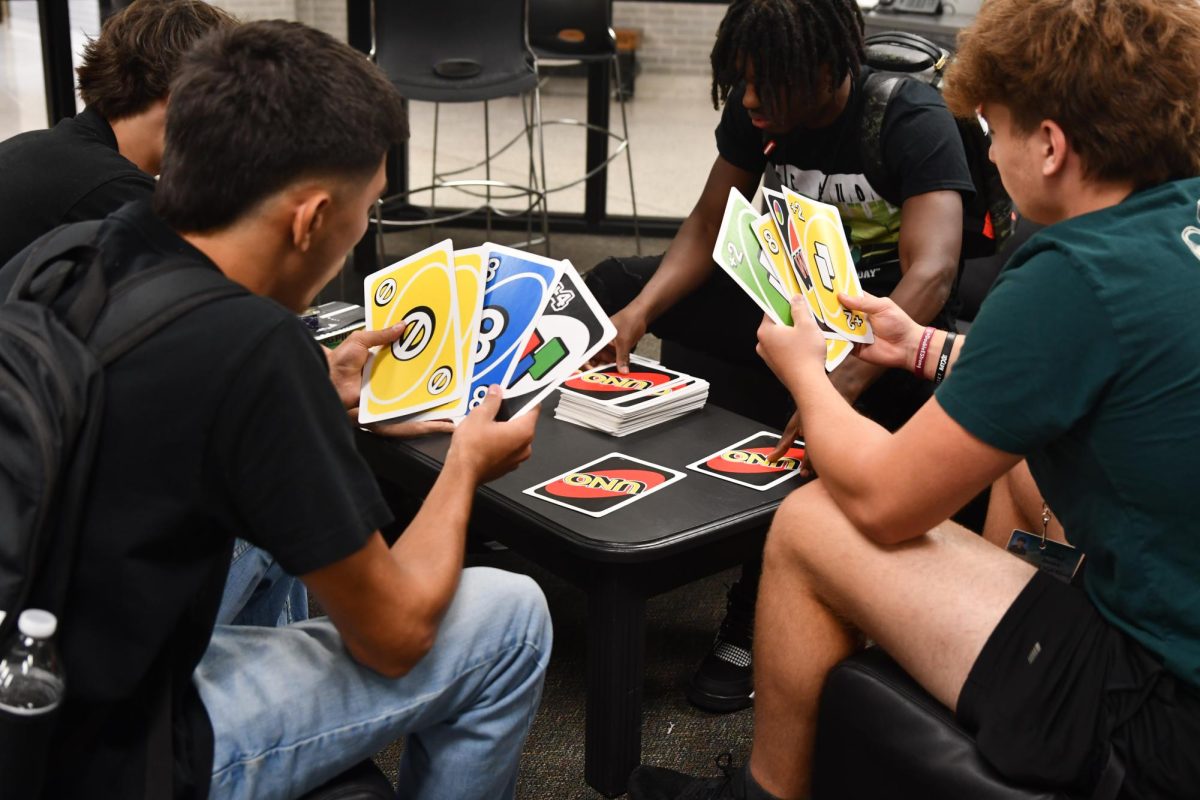
While cell phones have been a focal point, students are also adjusting to life without their own laptops and headphones. Chromebooks are primarily used by all students in classes now, and accommodations for certain students are being worked towards.
“We plan on purchasing a lot of wired headphones,” Solomon said. “With the potential of, if you’re in a class with a Chromebook, you could plug the headphones in that are [the school’s] headphones and listen to music through that.”
The ban of headphones has been especially difficult for students who often wore them during school to focus.
“The first assignment that I was given today, I noticed that I’m already getting distracted by the person whispering over there and the person typing over there,” junior Bishop Scott said. “It’s just like my ADHD is going all over the place and my headphones trap it.”
The school is working with families whose students may need access to their phones for health reasons or accommodations their student has utilized in the past. A district form can be filled out for parents who believe their kids may qualify.
Throughout the first week of the new policy, students and teachers have worked to create necessary adjustments to the new policy, even with the mixed reactions it has received.
“Some advantages is you could start focusing on your work since you have nothing else to do,” senior Andres Campos said. “Some disadvantages are that if you have nothing to do, then you just sit there and stare.”



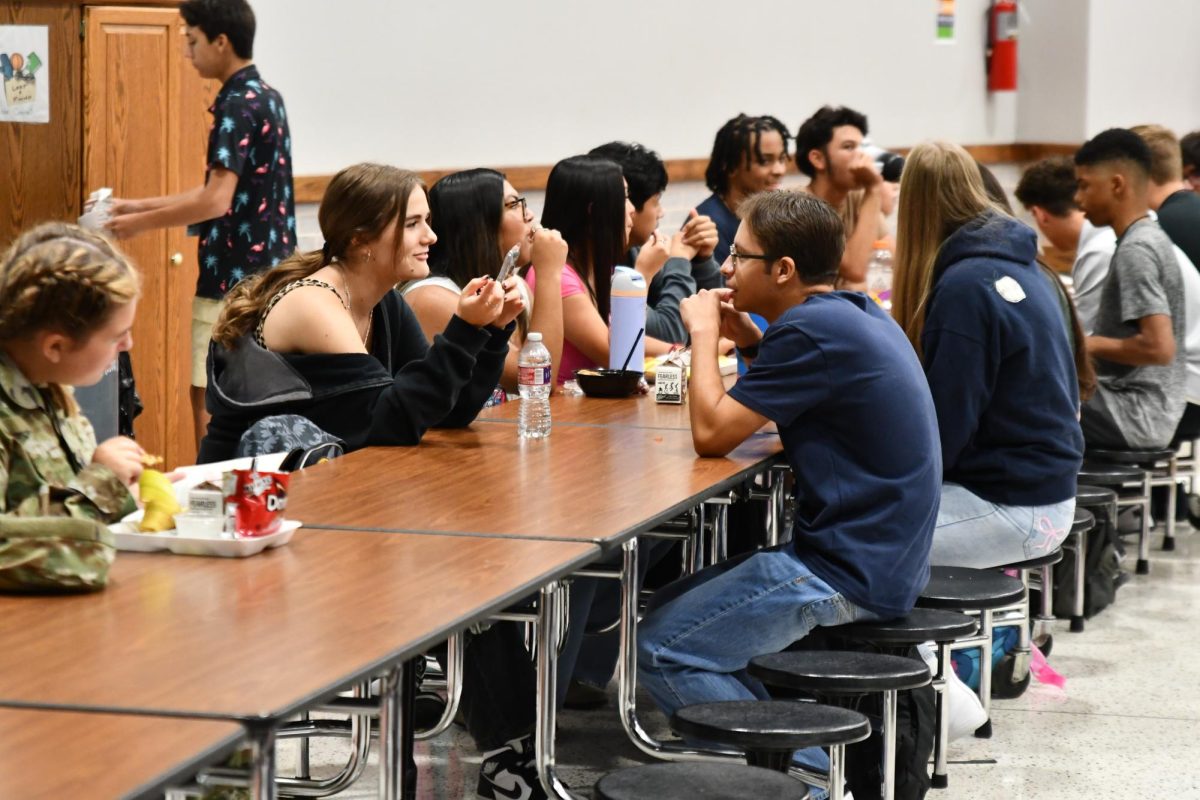


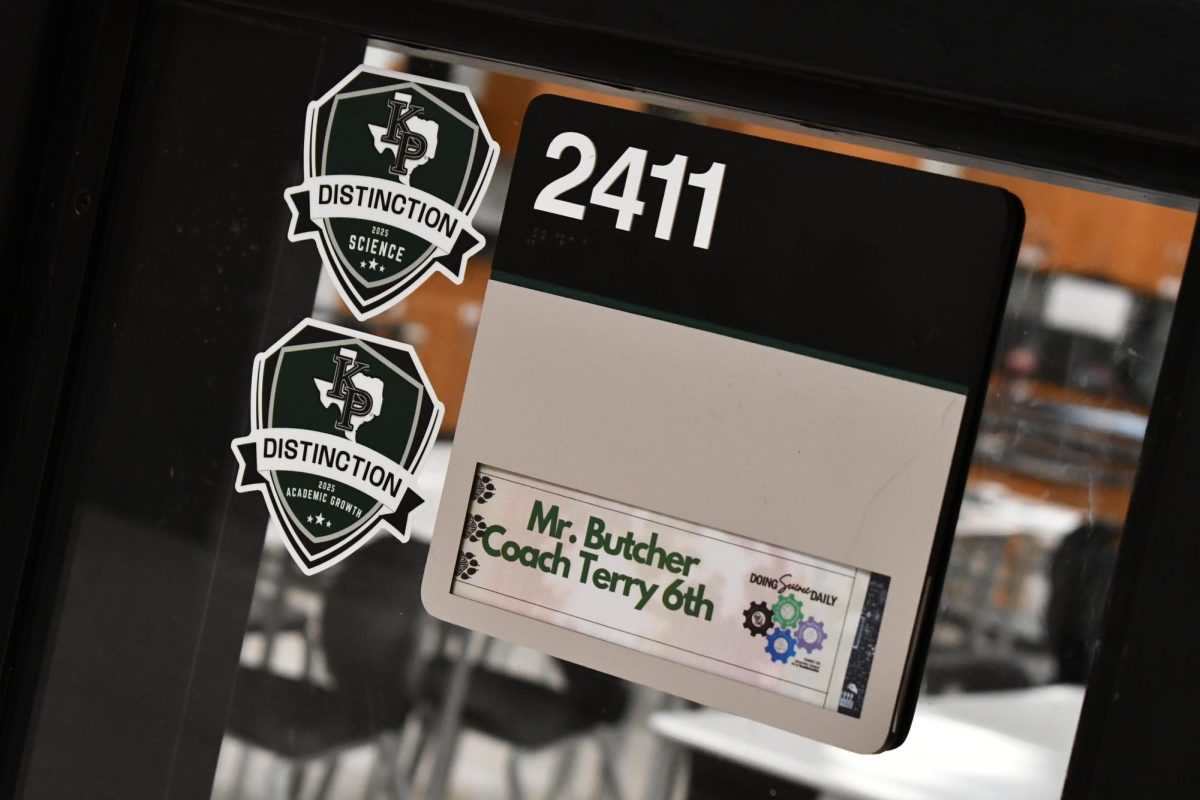
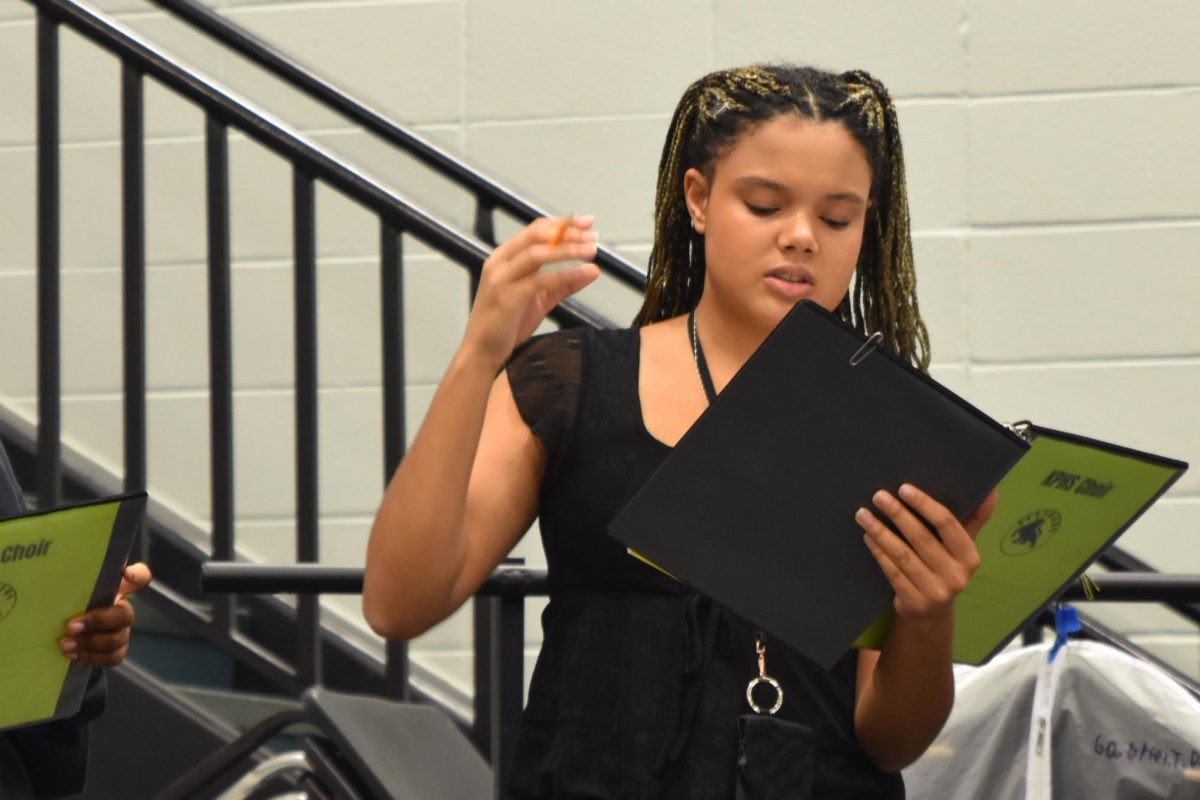
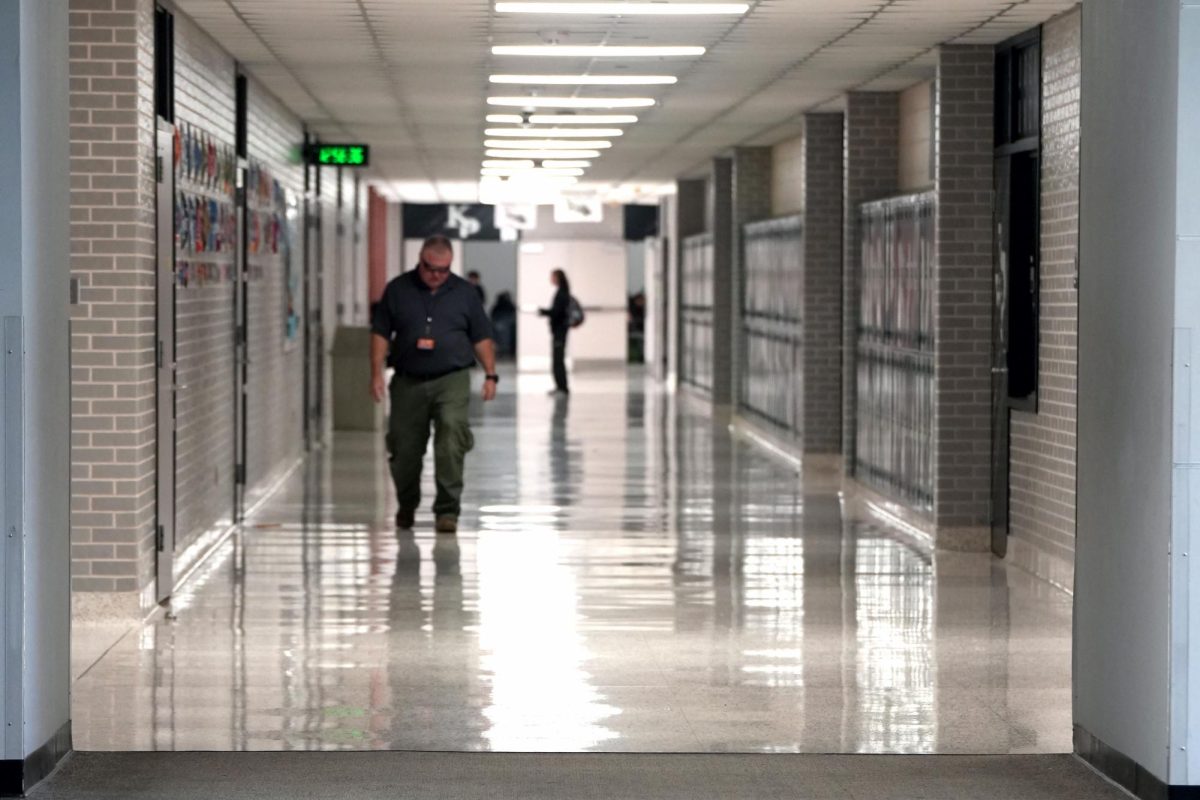
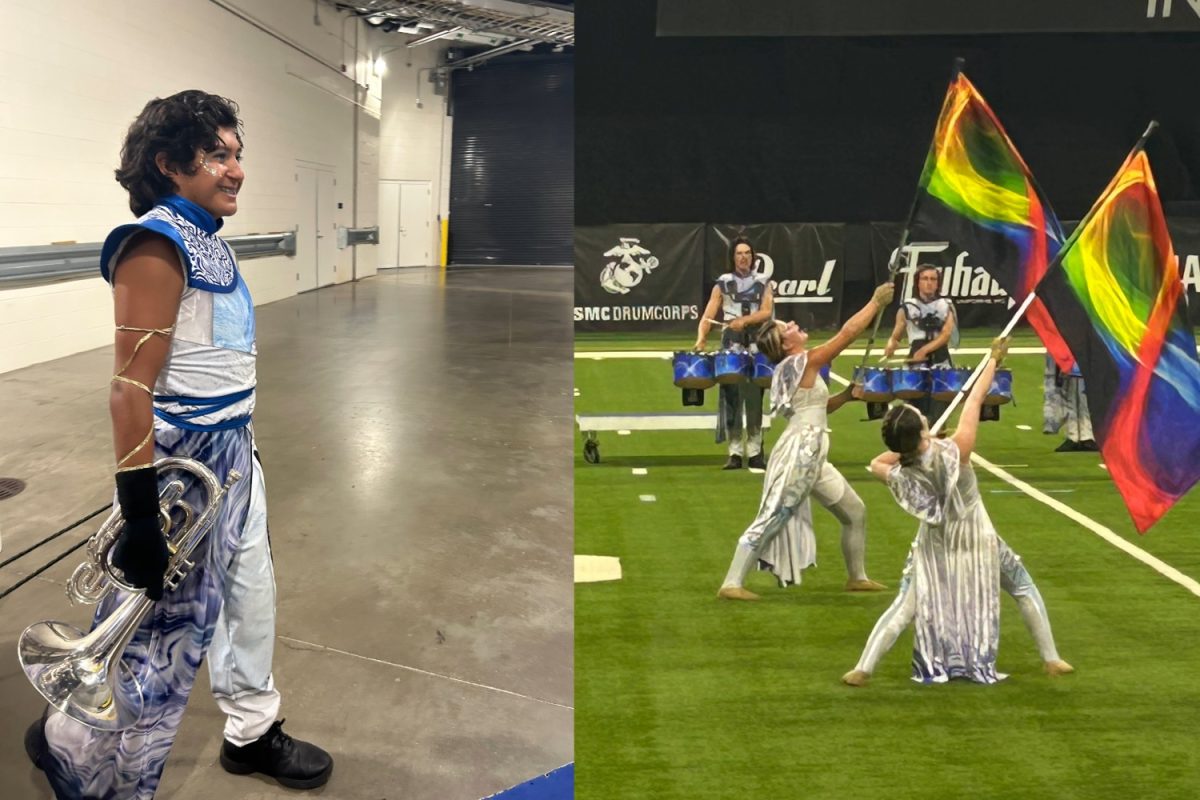
Jaiden • Sep 26, 2025 at 9:00 am
unbaned phones NOW!!!!